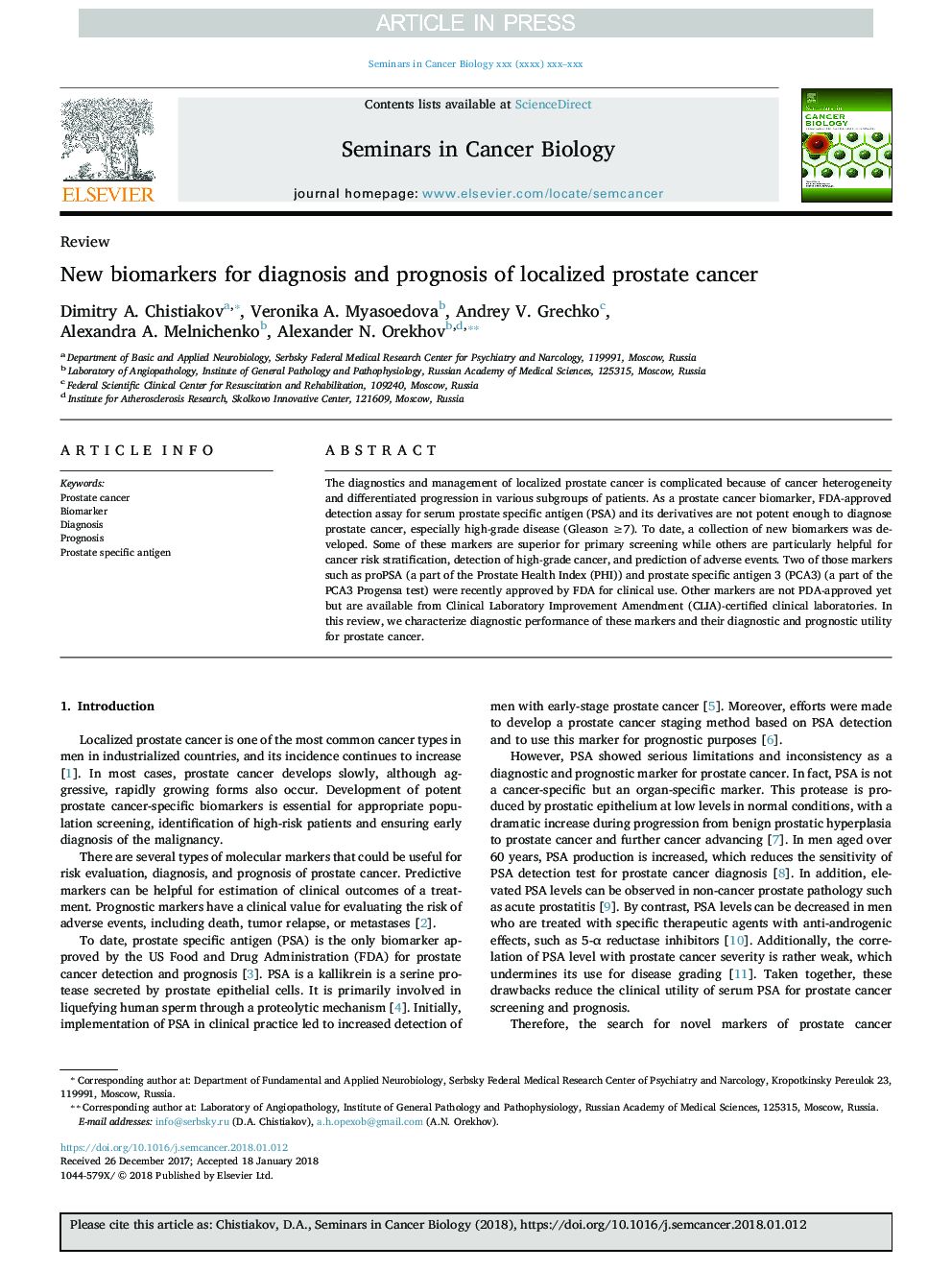| Article ID | Journal | Published Year | Pages | File Type |
|---|---|---|---|---|
| 10157011 | Seminars in Cancer Biology | 2018 | 8 Pages |
Abstract
The diagnostics and management of localized prostate cancer is complicated because of cancer heterogeneity and differentiated progression in various subgroups of patients. As a prostate cancer biomarker, FDA-approved detection assay for serum prostate specific antigen (PSA) and its derivatives are not potent enough to diagnose prostate cancer, especially high-grade disease (Gleason â¥7). To date, a collection of new biomarkers was developed. Some of these markers are superior for primary screening while others are particularly helpful for cancer risk stratification, detection of high-grade cancer, and prediction of adverse events. Two of those markers such as proPSA (a part of the Prostate Health Index (PHI)) and prostate specific antigen 3 (PCA3) (a part of the PCA3 Progensa test) were recently approved by FDA for clinical use. Other markers are not PDA-approved yet but are available from Clinical Laboratory Improvement Amendment (CLIA)-certified clinical laboratories. In this review, we characterize diagnostic performance of these markers and their diagnostic and prognostic utility for prostate cancer.
Related Topics
Life Sciences
Biochemistry, Genetics and Molecular Biology
Biochemistry
Authors
Dimitry A. Chistiakov, Veronika A. Myasoedova, Andrey V. Grechko, Alexandra A. Melnichenko, Alexander N. Orekhov,
